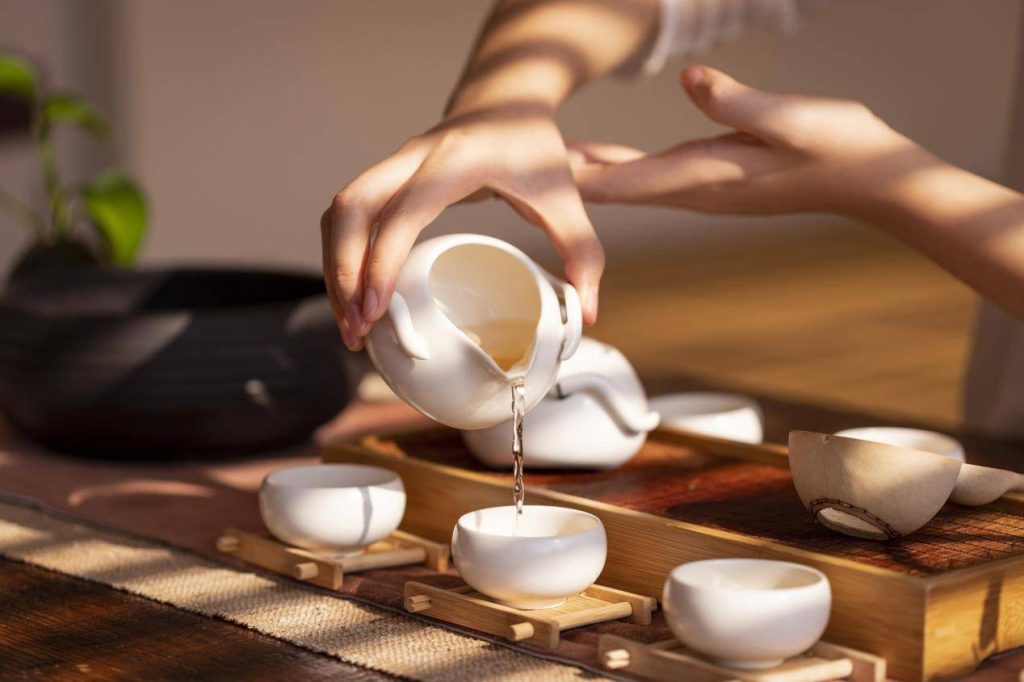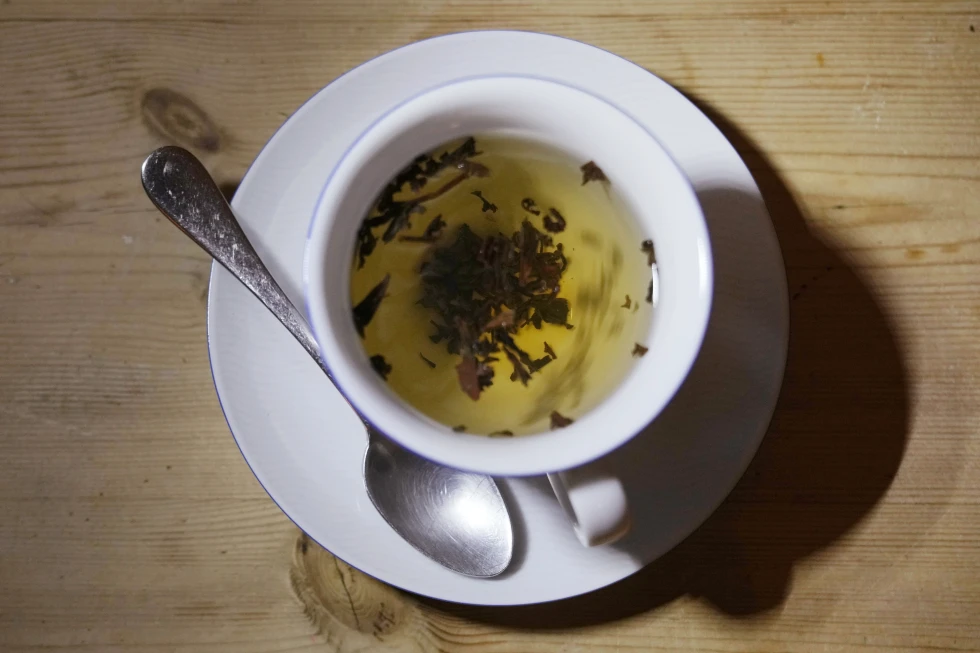In recent news, an American scientist has stirred up controversy across the Atlantic by offering Britain some unconventional advice on their beloved beverage, tea.
Michelle Francl, a chemistry professor at Bryn Mawr College, has suggested that a pinch of salt is the key to achieving the perfect cup of tea.
This recommendation, included in Francl’s book “Steeped: The Chemistry of Tea,” has sparked outrage among tea enthusiasts in Britain, who view the idea of adding salt to tea as sacrilegious.
The reaction to Francl’s suggestion has been nothing short of a tempest in a teapot, reminiscent of the historical tensions between the United States and Britain during the Boston Tea Party.
The mere concept of mixing tea with salt water has reignited age-old stereotypes and sparked a trans-Atlantic debate on the proper way to prepare this iconic beverage.
For centuries, tea has been an integral part of British culture, with its consumption deeply ingrained in social customs and daily rituals.
The art of making the perfect cup of tea is a skill that has been passed down through generations, and any suggestion to deviate from traditional methods is met with resistance.
In the eyes of many Britons, the idea of adding salt to tea is nothing short of sacrilege, a betrayal of their cultural heritage and a direct attack on their national identity.
The reaction to Francl’s suggestion highlights the deep-seated cultural differences between the United States and Britain, particularly when it comes to the consumption of hot beverages.
In the popular imagination, Americans are often depicted as coffee drinkers, with little regard for the nuances of tea preparation.
The stereotype of the “coffee-swilling boor” has long prevailed in British perceptions of their trans-Atlantic cousins, and Francl’s recommendation has only served to reinforce this image.
However, it is important to consider the scientific basis for Francl’s suggestion. As a chemistry professor, Francl approaches the art of tea-making from a scientific perspective, seeking to understand the chemical reactions that occur during the brewing process.
In her book, she delves into the intricacies of tea chemistry, exploring the role of various compounds and elements in shaping the flavor and aroma of the final brew.
From this perspective, the addition of a pinch of salt may indeed have a scientific basis, altering the chemical composition of the tea and enhancing its overall taste.
While the idea of adding salt to tea may seem unorthodox to many, it is worth noting that culinary traditions are constantly evolving, shaped by new discoveries and innovations.
Throughout history, the introduction of new ingredients and techniques has often been met with skepticism and resistance, only to be eventually embraced as part of the culinary canon.
In this light, Francl’s suggestion may be seen as a bold attempt to challenge traditional norms and encourage a rethinking of the art of tea-making.
In the end, the debate over the addition of salt to tea serves as a reminder of the rich cultural significance of this beloved beverage. Tea is not simply a drink, but a symbol of tradition, identity, and social ritual.
The passionate response to Francl’s suggestion reflects the deep emotional attachment that people have to their tea-drinking customs, and the fierce determination to preserve these traditions in the face of change.
As the controversy continues to brew, it is clear that the debate over the perfect cup of tea is far from over.

Whether one chooses to embrace Francl’s suggestion or adhere to traditional methods, the art of tea-making will continue to be a source of fascination and debate for generations to come.
In the end, perhaps the true essence of a perfect cup of tea lies not in the addition of salt, but in the rich tapestry of cultural significance and personal meaning that surrounds this timeless beverage.
In a surprising turn of events, the esteemed etiquette guide Debrett’s made a bold statement on social media, expressing their disdain for the mere mention of the word “salt” in relation to tea.
This declaration sparked a heated debate, prompting the U.S. Embassy in London to step in and reassure the people of the United Kingdom that the notion of adding salt to their beloved national drink was not an official policy of the United States.
The embassy’s social media post, filled with wit and humor, called for solidarity in the proper preparation of tea and even poked fun at their own method of making it by jokingly mentioning microwaving.
However, the embassy later clarified that their statement was meant to be a lighthearted play on shared cultural connections rather than an official press release.
This exchange highlighted the importance of cultural traditions and the power of humor in bridging international relations.
The book “Steeped” is a serious and meticulously researched exploration of the complex chemistry of tea. After three years of dedicated research and experimentation, the book delves into the more than 100 chemical compounds found in tea and offers practical advice on how to brew a better cup.
One interesting tip from the author is to add a small amount of salt to tea, which she claims can reduce bitterness by blocking the bitter receptors in our mouths.
Additionally, Francl recommends using a pre-warmed pot, agitating the tea bag vigorously, and serving the tea in a short, stout mug to preserve heat.
She also weighs in on the age-old debate of whether to add milk before or after the tea, a topic that often divides tea lovers.

The author has been surprised by the strong reaction to her book in Britain, where it has sparked diplomatic conversations with the U.S. Embassy.
This has led her to ponder the cultural differences between the U.S. and Britain when it comes to tea and coffee consumption.
She wonders if the U.S. is a more caffeinated society, with a preference for coffee, or if there is a subconscious rebellion against the tea-drinking traditions of Britain.
The level of interest and debate surrounding “Steeped” demonstrates the profound impact that tea has on our culture and society.
